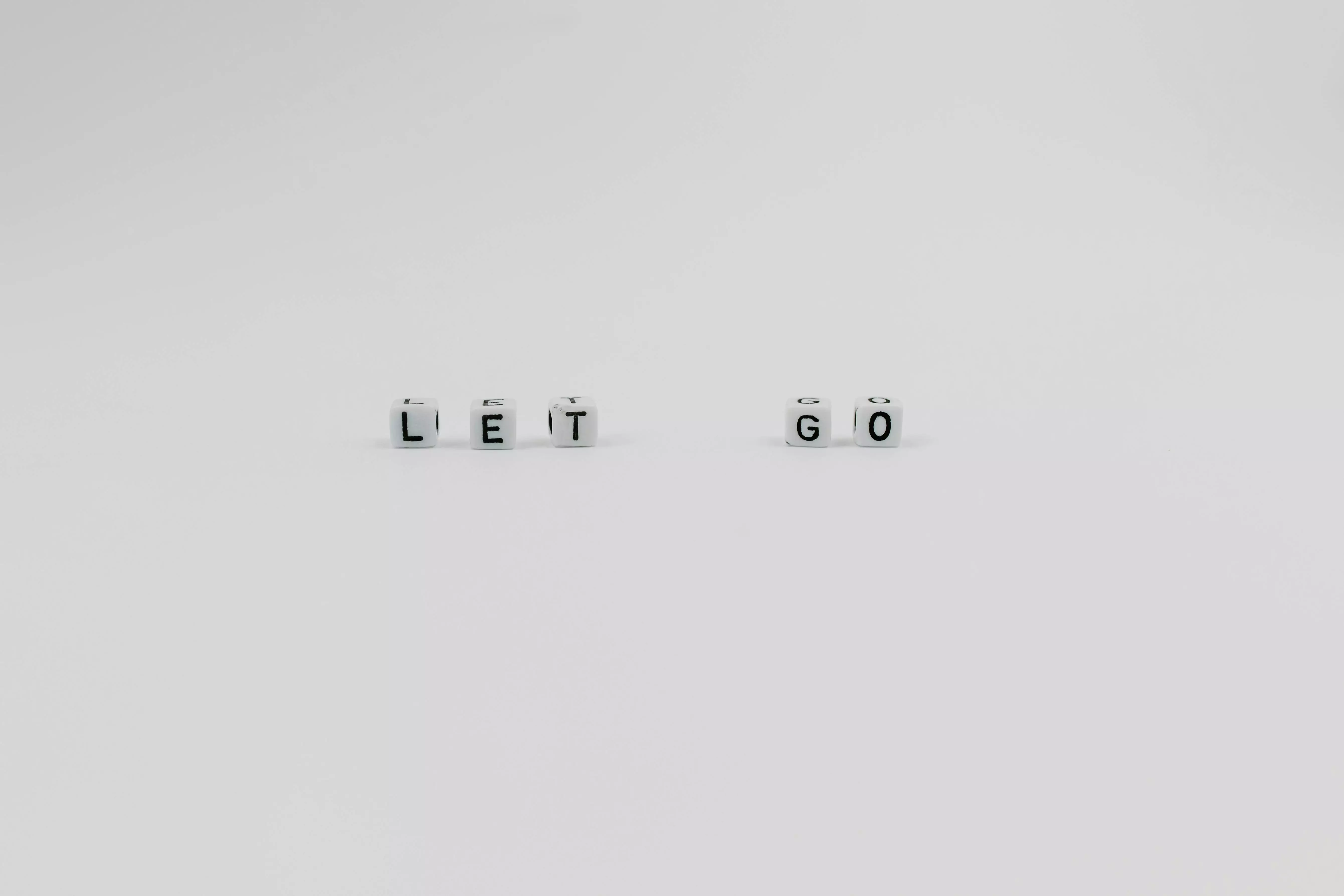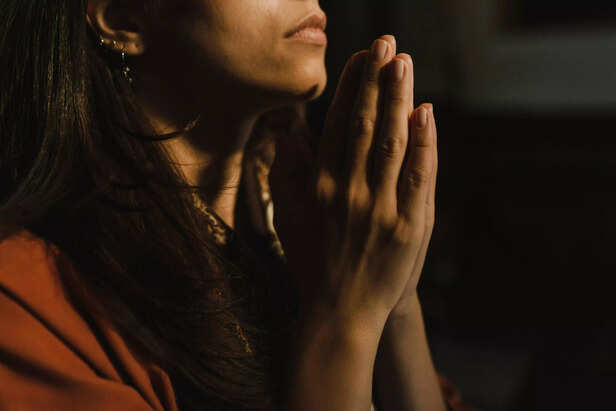Why Some People Never Pray but Are Still Lucky: Luck or Coincidence?
Riya Kumari | Jan 16, 2025, 22:44 IST
There’s no one-size-fits-all answer to life’s luck paradox. Prayer, for many, is a source of hope, connection, and peace. For others, letting go and trusting the randomness of life works just as well. The real question isn’t whether you should pray or not—it’s whether you’re living in alignment with what you truly believe. Are you praying from a place of trust, or fear? Are you acting with intention, or waiting for life to happen to you?
You ever notice how some people seem to waltz through life like they’ve got a backstage pass to the universe? Like, while you’re out here meditating, manifesting, and lighting enough candles to make Yankee jealous, they’re just... chilling? No prayers. No rituals. Just vibes—and yet, everything falls into place for them. Jobs? They don’t even apply—opportunities just happen. Relationships? Love interests appear as if summoned by an invisible romcom screenwriter. Car parking? Always the front row.
1. Luck and the Psychology of Mindset

Here’s the thing about luck—it’s often about perception. Psychologist Richard Wiseman studied this in his book The Luck Factor. He found that people who consider themselves lucky aren’t necessarily blessed by the heavens; they simply think differently. They’re more open to new experiences, take more risks, and pay attention to opportunities others might miss. Non-prayers, intentionally or not, might be practicing this mindset. They don’t agonize over “what-ifs” or obsess over divine intervention. They roll with life’s punches and, in doing so, create more chances to succeed. Meanwhile, those of us praying might unknowingly adopt a fixed mindset, waiting for external forces to solve our problems. It’s not that prayer is wrong—it’s that over-reliance on it can sometimes make us passive.
2. Philosophy: Chaos Is the Default

From a philosophical perspective, life is fundamentally chaotic. The ancient Stoics were all about this. They believed the universe operates according to its own logic, indifferent to our desires. Marcus Aurelius would probably tell you that the lucky people aren’t blessed—they’re just surfing the randomness better than you. When you stop expecting life to be fair or the universe to follow a moral script, you can focus on what you can control. And ironically, that mindset—of detaching from outcomes—often invites the very flow of good fortune you were chasing.
3. Spiritual Detachment: The Power of Letting Go

Here’s a little spiritual secret: sometimes, not praying is the most spiritual thing you can do. Stick with me here.
In many Eastern philosophies, like Taoism or Zen Buddhism, the idea isn’t to ask the universe for what you want but to align yourself with the flow of life. The Tao Te Ching says, “Stop chasing and the world will follow you.” In other words, non-prayers might unknowingly embody a deep spiritual truth: surrender. By not praying, they avoid attaching themselves to outcomes. They don’t send desperate energy out into the universe; they just live. And in the process, they’re often more receptive to the natural currents of opportunity. Compare that to someone who prays obsessively, trying to micromanage every detail of their fate. Sometimes, prayer can come from a place of fear rather than trust, and that fear might create resistance rather than flow.
4. Science: The Role of Probability and Privilege

Here’s the cold, hard truth: luck is often just probability dressed in fancy clothes. Statistically, some people are simply born into circumstances that increase their chances of success. Science calls this the Matthew Effect—the idea that “the rich get richer.” If someone starts life with a head start (good health, wealth, access to education), they’re more likely to experience success without trying. Non-prayers might not be “lucky” in the cosmic sense—they’re just beneficiaries of a system that already works in their favor. Meanwhile, those of us praying might be trying to overcome systemic disadvantages through sheer willpower and hope. But here’s where it gets interesting: studies in quantum physics suggest that our thoughts and intentions can influence reality. The observer effect, for example, shows that simply observing something changes its behavior. So, while privilege and probability play a big role, your mindset and energy can still shift the odds—if you’re in tune with them.
5. The Human Brain: Prayer as a Double-Edged Sword

Neuroscience tells us that prayer can be incredibly powerful. It activates the prefrontal cortex (decision-making) and the anterior cingulate cortex (emotion regulation). It reduces stress, increases focus, and fosters resilience.
But here’s the catch: the brain is also really good at overthinking. If prayer becomes less about connection and more about anxiety (“What if God doesn’t answer?”), it can backfire. Non-prayers skip this mental tug-of-war entirely. Their brains stay in a more relaxed, creative state, which science shows is the best mental state for problem-solving.
6. The Paradox of Luck: Effort Meets Ease

Here’s the philosophical kicker: life often rewards those who work smart, not hard. Non-prayers aren’t necessarily lazy—they just operate differently. They trust themselves, embrace uncertainty, and remain open to serendipity.
Prayers, on the other hand, often over-exert themselves spiritually, trying to force outcomes. But the universe doesn’t work on deadlines or to-do lists. It works on rhythm. And sometimes, stepping back—praying less, worrying less, controlling less—is the key to syncing with that rhythm.
Trust it. Or don’t. Either way, you’ll end up exactly where you need to be.
1. Luck and the Psychology of Mindset

Dice
Here’s the thing about luck—it’s often about perception. Psychologist Richard Wiseman studied this in his book The Luck Factor. He found that people who consider themselves lucky aren’t necessarily blessed by the heavens; they simply think differently. They’re more open to new experiences, take more risks, and pay attention to opportunities others might miss. Non-prayers, intentionally or not, might be practicing this mindset. They don’t agonize over “what-ifs” or obsess over divine intervention. They roll with life’s punches and, in doing so, create more chances to succeed. Meanwhile, those of us praying might unknowingly adopt a fixed mindset, waiting for external forces to solve our problems. It’s not that prayer is wrong—it’s that over-reliance on it can sometimes make us passive.
2. Philosophy: Chaos Is the Default

Cards
From a philosophical perspective, life is fundamentally chaotic. The ancient Stoics were all about this. They believed the universe operates according to its own logic, indifferent to our desires. Marcus Aurelius would probably tell you that the lucky people aren’t blessed—they’re just surfing the randomness better than you. When you stop expecting life to be fair or the universe to follow a moral script, you can focus on what you can control. And ironically, that mindset—of detaching from outcomes—often invites the very flow of good fortune you were chasing.
3. Spiritual Detachment: The Power of Letting Go

Let go
Here’s a little spiritual secret: sometimes, not praying is the most spiritual thing you can do. Stick with me here.
In many Eastern philosophies, like Taoism or Zen Buddhism, the idea isn’t to ask the universe for what you want but to align yourself with the flow of life. The Tao Te Ching says, “Stop chasing and the world will follow you.” In other words, non-prayers might unknowingly embody a deep spiritual truth: surrender. By not praying, they avoid attaching themselves to outcomes. They don’t send desperate energy out into the universe; they just live. And in the process, they’re often more receptive to the natural currents of opportunity. Compare that to someone who prays obsessively, trying to micromanage every detail of their fate. Sometimes, prayer can come from a place of fear rather than trust, and that fear might create resistance rather than flow.
4. Science: The Role of Probability and Privilege

Rich kid
Here’s the cold, hard truth: luck is often just probability dressed in fancy clothes. Statistically, some people are simply born into circumstances that increase their chances of success. Science calls this the Matthew Effect—the idea that “the rich get richer.” If someone starts life with a head start (good health, wealth, access to education), they’re more likely to experience success without trying. Non-prayers might not be “lucky” in the cosmic sense—they’re just beneficiaries of a system that already works in their favor. Meanwhile, those of us praying might be trying to overcome systemic disadvantages through sheer willpower and hope. But here’s where it gets interesting: studies in quantum physics suggest that our thoughts and intentions can influence reality. The observer effect, for example, shows that simply observing something changes its behavior. So, while privilege and probability play a big role, your mindset and energy can still shift the odds—if you’re in tune with them.
5. The Human Brain: Prayer as a Double-Edged Sword

Pray
Neuroscience tells us that prayer can be incredibly powerful. It activates the prefrontal cortex (decision-making) and the anterior cingulate cortex (emotion regulation). It reduces stress, increases focus, and fosters resilience.
But here’s the catch: the brain is also really good at overthinking. If prayer becomes less about connection and more about anxiety (“What if God doesn’t answer?”), it can backfire. Non-prayers skip this mental tug-of-war entirely. Their brains stay in a more relaxed, creative state, which science shows is the best mental state for problem-solving.
6. The Paradox of Luck: Effort Meets Ease

Trust
Here’s the philosophical kicker: life often rewards those who work smart, not hard. Non-prayers aren’t necessarily lazy—they just operate differently. They trust themselves, embrace uncertainty, and remain open to serendipity.
Prayers, on the other hand, often over-exert themselves spiritually, trying to force outcomes. But the universe doesn’t work on deadlines or to-do lists. It works on rhythm. And sometimes, stepping back—praying less, worrying less, controlling less—is the key to syncing with that rhythm.
Trust it. Or don’t. Either way, you’ll end up exactly where you need to be.
